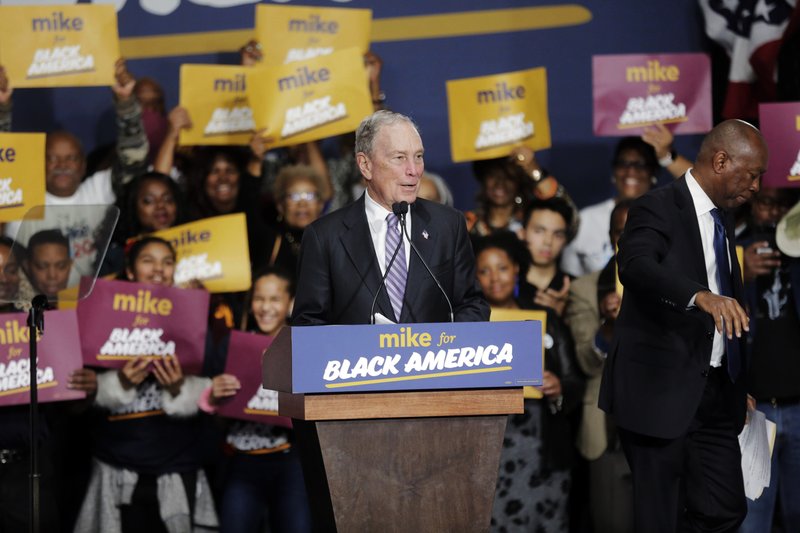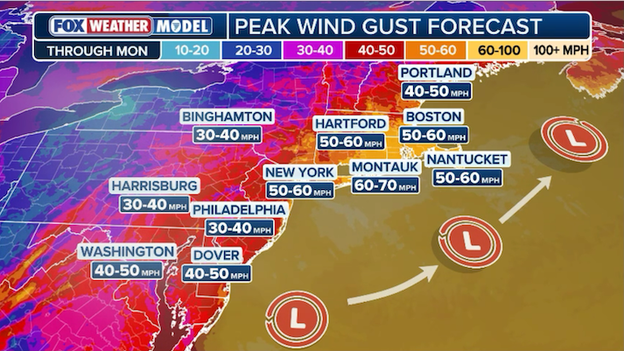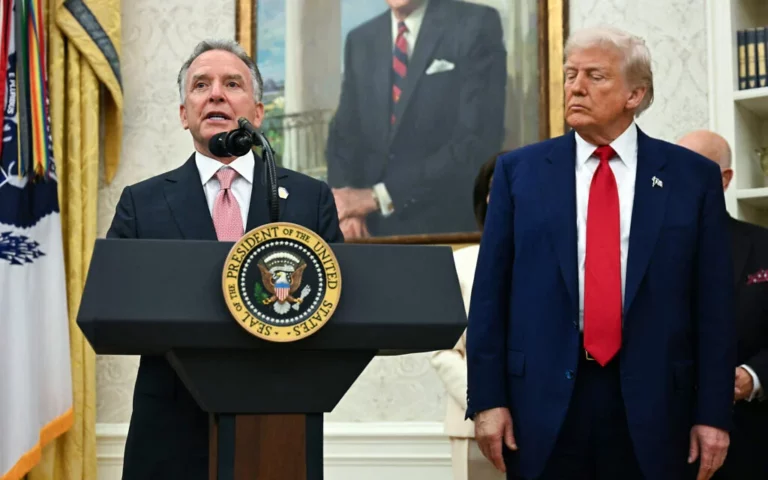Sparring between Mike Bloomberg and the leading Democratic candidates erupted hours before Wednesday night’s debate, previewing what’s expected to be a tense night as the billionaire businessman meets his rivals onstage for the first time.
Both Bernie Sanders’ and Joe Biden’s campaigns took aim at Bloomberg, the former raising questions about the 78-year-old’s health and the latter pointing out reversals in Bloomberg’s stances on key issues.
The attacks underscore how seriously Democrats are taking the former New York mayor’s campaign, now that he’s rocketed to double-digit support in national polls and qualified for the next two debates. Bloomberg, who formally registered as a Democrat in 2018, has faced relatively little national scrutiny in his surprisingly swift rise from nonpartisan megadonor to top-tier presidential contender.
On CNN Wednesday morning, Sanders’ national press secretary Briahna Joy Gray tried to rebut questions surrounding the Vermont senator’s health by pointing to Bloomberg, who she said had also “suffered heart attacks in the past.” Sanders suffered a heart attack last fall and released letters from doctors attesting to his health. But Bloomberg has never suffered a heart attack; he released a doctors’ letter last year that said he did undergo coronary stent surgery in 2000.
Gray later walked back her statement, saying on Twitter that she “misspoke” about Bloomberg’s health.
Separately, the Biden campaign took on Bloomberg over ads the former mayor is running that feature shots of him working closely with former President Barack Obama. The Biden campaign posted a video to Twitter highlighting past comments Bloomberg made criticizing Obama on health care and climate change and accusing him of failing to address racism during his term. The video also includes a clip of Bloomberg declaring “I’m a friend of Donald Trump’s, he’s a New York icon.”
Bloomberg had until recently largely escaped scrutiny from the media and attacks from his opponents by avoiding the early primary states and focusing instead on campaigning in the 14 states that vote in the March 3 Super Tuesday primaries. And his massive campaign — with over 2,000 staffers nationwide and over $400 million spent on ads already — has thus far given him enough of a boost to win high-profile endorsements and double-digit support in the polls.
But Wednesday night’s debate in Las Vegas, where Bloomberg will face off against five opponents who have made clear in recent days they’re eager to take him on, will pose the greatest test yet of his unorthodox campaign strategy.
“He is going to have a giant target on his back from all sides,” said Democratic strategist Brian Brokaw. “It’ll either all come together brilliantly or could fall apart very quickly.”
The debate comes at a pivotal point in the campaign. Some moderate Democrats increasingly are looking to Bloomberg as an alternative to progressive Sanders.
Bloomberg’s been running a campaign focused on his work on progressive priorities, like his gun-control and climate-change advocacy. His campaign released a list of more than a dozen debate guests hours before the 9 p.m. EST event, featuring survivors of gun violence from several states. They include one man present at the 2017 shooting in Las Vegas that left 58 dead and hundreds more injured.
The stakes are high for every candidate onstage just days before Nevada’s presidential caucuses, the third contest in the Democrats’ chaotic 2020 primary season. After more than a year of campaigning, there is little clarity in their urgent search for a nominee to run against President Donald Trump in November.
Longtime establishment favorite Biden, a former two-term vice president, is fighting to breathe new life into his flailing campaign, which enters the night at the bottom of a moderate muddle behind former South Bend, Indiana, Mayor Pete Buttigieg and Minnesota Sen. Amy Klobuchar. Sanders, a Vermont senator, has emerged as the progressive wing’s clear preference after two contests as Massachusetts Sen. Elizabeth Warren is struggling to regain energy around her campaign.
Some Democrats fear that the conditions are ripe for a bare-knuckles brawl on national television that could carve new scars into a divided Democratic Party that must ultimately come together this fall if it hopes to deny the Republican president a second term.
Bloomberg’s rivals have already indicated they will lean into his explosive comments on race and gender in addition to their charge that he’s using a fortune earned from a career on Wall Street in an effort to buy the presidency. Bloomberg’s rise in national polls has been fueled almost exclusively by an unprecedented national advertising campaign, carefully controlled campaign events and a sprawling national organization that has likely already cost him more than half a billion dollars.
Alexandra Rojas, executive director of the Sanders-allied Justice Democrats, called Wednesday Bloomberg’s first “public moment of accountability.”
“It’s going to be a chance to finally bring scrutiny to Bloomberg’s record as a Republican plutocrat,” she said.
Bloomberg’s team was working to lower expectations ahead of his performance, suggesting his debate skills are rusty after more than a decade since his last election.
Bloomberg hasn’t been on a debate stage since 2009. His team notes he never faced more than one rival at a time over three elections for New York City mayor.
Despite the challenges, senior adviser Tim O’Brien signaled that Bloomberg welcomed a fight against Sanders, whom the campaign perceives to be the race’s clear front-runner.
“I think you’re going to see us go toe-to-toe with Bernie Sanders on important issues,” O’Brien said in an interview, raising questions about Sanders’ personal wealth, record on criminal justice and gun control.
Sanders welcomed the fight as well.
The Vermont senator railed against Bloomberg and “a system that allows billionaires to buy elections,” while campaigning in Nevada on the eve of the debate.
“Here is the message: Anyone here worth $60 billion, you can run for president, and you can buy the airwaves. My friends, that is called oligarchy, not democracy.”
While the same age and race, Bloomberg and Sanders are ideological opposites.
Bloomberg is one of the world’s richest men, having generated a net worth estimated at $60 billion after a career on Wall Street. He has spent hundreds of millions of dollars to combat climate change and gun violence and promote immigration reform in recent years, yet he takes a decidedly pragmatic approach that celebrates incremental improvement backed by data.
Sanders has a net worth estimated at $2.5 million thanks to book sales and the value of his home, but he has spent a lifetime in politics as an uncompromising democratic socialist demanding a political revolution to transform the nation’s politics and economy. He measures his success largely by the impact he’s had on the public debate, which has warmed to his calls for a $15 minimum wage, universal health care and sweeping action on climate change.
Bloomberg is not actually competing in Nevada’s Saturday caucuses or any of the four primary contests scheduled for this month, preferring to invest his time and resources in the delegate-rich states that begin voting in March. In the modern era, such a strategy has never worked. Yet it’s never been attempted by someone as wealthy as Bloomberg, who has already invested more than $400 million into a national advertising campaign and hired more than 2,000 campaign staffers.
The focus on Bloomberg on the debate stage, of course, means there will be less oxygen for others at a critical moment.
Buttigieg essentially tied in Iowa with Sanders and was a narrow second-place finisher in New Hampshire, yet many establishment leaders remain skeptical of the 38-year-old’s limited experience and ability to assemble a multiracial coalition to defeat Trump.
Klobuchar surged into the top tier of the race with a strong debate performance in New Hampshire. But with a significantly smaller national brand, she faces lingering questions about the strength of her organization and appeal among minority voters.
Warren may have the most to gain Wednesday night, having been pushed from the top tier after a bad performance in New Hampshire’s primary last week. And Biden is betting everything on a comeback fueled by minority support in Nevada and South Carolina in the next two weeks.
(AP)











